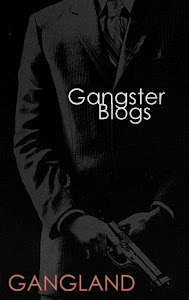When Santos Guzman sought help from a state program for onetime gang members, there was no mistaking his gang affiliation.
His forehead bore the large tattooed inscription "MS-13 Sur," a unit of the feared Mara Salvatrucha, or MS-13, gang that has tentacles across Central America and the U.S. Two tattooed teardrops trickled down his cheek below his left eye. Huge tattoos on his chest and back gave him an inky sort of body armor. His fingers and legs also sported gang tattoos.
On his sixth visit to a state Tattoo Removal Clinic, Guzman lay face down on a padded exam table. A physician aimed a jet of chilled air at a giant tattoo on Guzman's back, drawing a slight wince on his face. Then with a laser, she traced the outline of the tattoo, gently coaxing the ink out from below the skin.
Guzman wants the 20 or so tattoos on his body to vanish. He gave up the life of a gangbanger long ago but only recently learned that the evidence of his past — such as the ink billboard on his forehead — could be erased. Guzman said he grew tired of trying to hide his tattoos with long-sleeved shirts, and with pancake makeup on his face.
"The culture here is that whoever has tattoos is a criminal," he explained.
Potential employers shut the door on anyone who is tatted up, fearing street gangs that relentlessly extort businesses. When tattooed riders get on buses, fellow passengers often change seats or get off altogether. Gangs have firebombed buses as part of widespread campaigns for extortion and turf.
"People panic when they see these guys," said Gladis Pacheco, a psychologist at the Tattoo Removal Clinic run by the National Council of Public Security. "In this country, it is just a primordial requirement to get rid of one's tattoos."
Tattoos have a mystique in North America and Europe. Those sporting them — from office clerks to actors and on to athletes — feel sexy or empowered. A survey early last decade found that 1 out of 7 U.S. adults have tattoos. Skin art has moved from skank to hip, from taboo to mainstream.
Not so in El Salvador. Tattoos are the province of the two big street gangs, the MS-13 and the 18th Street, and for much of the past two decades, young gangsters allowed the tattoos on their faces to serve as an angry warning to anyone who dared cross them.
That started to change eight years ago, with the first of a series of mano dura, or "hard hand," law enforcement crackdowns to break criminal gangs, whose ranks were swelling from a stream of thousands of Salvadoran gang members deported from the U.S. From July 2003 to June 2004, police arrested some 18,000 gang members, although only 5 percent were given prison terms, said Jeannette Aguilar, a gang expert at the Central American University here.
Following a subsequent crackdown, called super mano dura, gang leaders told members to restrict tattoos to less visible parts of their bodies.
"They aren't getting so many tattoos now," said Gersan Perez Mendez, a veteran commissioner of the National Civil Police. "They definitely don't put them on their hands and faces."
GANGWORLD CUSTOM SEARCH

Custom Search
Subscribe to:
Post Comments (Atom)













0 comments:
Post a Comment